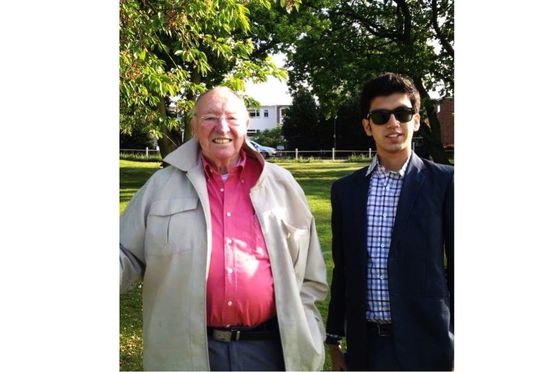Career in law in 2023: A detailed guide to start your journey by Anubhab Sarkar


The legal profession is one of the most prevalent professions in the country and serves an essential purpose in society. Professionals maintain a balance between the legislative, executive and judicial branches. However, if you are pursuing law and considering a career overseas, we bring you just the right advice.
The Telegraph Online Edugraph recently spoke to Anubhab Sarkar, the founding partner of Triumvir Law, a firm specialising in International Commercial Arbitration and Commercial Laws. Read on for his journey, career advice and tips for beginners who wish to work in law outside India.
1. Did you chalk out a detailed business and marketing plan in advance at the planning stage before starting your own law firm? If yes then how?
Before chalking out a business and marketing plan, it was very important to understand what I was getting myself into and what were the possible challenges I would be faced with as a lawyer-entrepreneur. The idea of starting one’s own law firm has recently gained more popularity post liberalisation of India. We see ex-partners or ex-senior associates leaving top-tier law firms to start their own. The Indian law firm culture is gaining momentum and is changing the way we see law firms today; in the sense that running your own successful legal practice or working on big cases no longer depends on the number of white hairs that you have but rather the kind of work that you bring to the table and the confidence that you usher in. Given that the advent of new-age law firms is fairly new, there is always scope for doing something out-of-the-box and innovative. That was the basic plan that I started with.
Secondly, it is very important to study your target market and figure out how you can cater to the needs of the target market in the best way possible. I was based in Bangalore when I started Triumvir Law. Bangalore is one of the prime hubs for start-ups and software companies. Most bootstrapped start-ups start with little to no capital or judiciously spend their capital on growing their business, thus, spending on exorbitant fees charged by top law firms was not a viable option for young founders.
Before venturing out into the world of start-ups, young founders seek to hire legal counsel that could really understand the aspirations behind their venture while overseeing the legal aspects of things. They wanted someone young that could handhold them through the process and is accessible in terms of transaction documents and their basic needs. Therefore, it is important to have business acumen alongside legal acumen, step into the shoes of the founders, and hand-hold start-ups at every step of the way, from its embryonic stage to its mature stage. The fact that they are dealing with millions of dollars, and in the event they went into a dispute, they would want their matter to be handled with personalised professionalism rather than distant professionalism.

2. You had the rare opportunity to work under Professor J.Martin Hunter in London. What did your day to day look like while working under him?
I was working as a Research Assistant to Prof. Hunter. My day-to-day responsibilities involved preparing communication to be sent to the parties in high stake investment treaty arbitration and international arbitration, researching on various points of law, preparing case notes, and preparing research modules and teaching modules at King's College London for Prof. J. Martin Hunter. I was at the Essex Court of Chambers, which was populated by top-notch lawyers who practise International Law. That experience and inspiration propelled my career to where I am today. I got a taste of what the legal profession looked like and what it takes to truly excel in the legal fraternity. Aside from the opportunity to work on major cases, the experience taught me how to be a better person. It taught me to stay grounded while reaching for the stars. These experiences were intrinsically important in shaping my career. Even the small things that one picks up during these experiences adds up to the larger picture in one’s growth.
Having been abroad, I was able to observe the gap between the Indian legal market and that abroad. Even though the legal market in India has grown exponentially, it is not as developed as the one in the west. The prime focus should be on the clients but in order to satisfy the needs of your clients, lawyers must work in a motivating and encouraging environment with less hierarchical treatment, which is often seen in this profession. Thus, with the intention to bring about a change in the Indian law firm culture, I started my law firm.
3. What according to you are some of the crucial steps which one can take to build lasting business relationships for delivering exceptional client experience in the initial stages of one’s business?
First, one must understand that building a lasting business relationship depends entirely on trust. You have to gain the trust of the clients and the people in the industry in order to usher in the type of work that you desire, and this can only be obtained through hard work, building a presence, and patience.
Hard work: Through this process, I realised that even the smallest bit of work that you get is important. No matter how small, it must be done with full intention and conviction. It could be as simple as drafting an application or filing a court intervention for a small matter, but it is essential that you have your foot in the door. Whatever the work, big or small, you must keep doing it. That is essentially what I mean by hard work.
Building a presence: Hard work also includes making yourself visible. Networking is one way to establish a presence. For instance, currently, I am in the Hague, Netherlands to get a “foot in the door” in the international law space. The other way is to write. There are various portals which allow you to write on various legal issues. I do not mean just mindlessly writing, but being analytical in what you write because that is what draws people's attention. Even writing to people about your work and the issues pertaining to law or the topics you are working on goes a long way.
Patience: You must be patient while continuing to put in the effort. The fruits of your labour will be visible over time. It is critical to have the patience to be consistent in your work. Over the years, I've learned patience is a virtue and hard work always pays off.

4. You have also been called upon as a judge in several moot court competitions. What according to you are a few of the crucial areas that a young law practitioner must definitely look upon when solving or studying a case pattern?
Mooting
Mooting is one of the few things in law school that truly prepare you for the real world. Your research, reading, communication, interpretation skills and the ability to handle difficult situations are all tested, and this is what the legal profession expects of you.
The approach you take to solving or studying a case pattern is critical. The first step is to be very thorough with the facts of the case. Only after you have the facts at your fingertips can you begin researching the points of law. Once the research is completed, you analyse the legal issues. Once you have the legal issues prepared, you must sequence them in a way that makes sense and has a flow to it.
Qualities to stand out in the competitive space
In order to stand out in this competitive market, one must be ready to face whatever comes their way with confidence. The Indian legal market is a dynamic and fast evolving one. Thus, it is crucial to keep up with the times and constantly find innovative and diverse ways to solve the challenges of our time. Secondly, being organised and setting up work in a systematic manner in order to meet timelines and firm expectations. Thirdly, publicising yourself. Nobody is going to publicise you until and unless you publicise yourself. You are your biggest publicist. Fourthly, firm communication. Firm communication is required to effectively express your ideas without fear of being judged, which will also help build confidence.
5. What according to you are some of the promising prospects for a young law student when travelling overseas for work purposes?
Different countries have their own separate bar exams and people of different nationalities can study and are allowed to appear for these exams in order to practise in that country. Students who have studied law in India will find it easier to find opportunities in countries that follow the common law system, as India does. An L.L.M. in the desired country can help you learn about the law of that country while also expanding one’s network and outreach.. In any case, knowledge will always be your most powerful weapon in achieving success in any field.
Renowned India based law firms are expanding their practises in various areas of law outside of India; therefore, it is critical for young law students to find different ways to upskill themselves, such as enrolling for different courses and programmes offered by various universities. Young law students who are interested in a specific field of law must be very familiar with both the theoretical and procedural aspects of the law. Additionally, it is crucial for law students to intern at places that can provide them with valuable first-hand experience. It is always advisable to keep abreast of various occurrences in the target field of practice and to stay up to date on the latest legal trends, through newspapers, conferences, and scholarly writings. Various online platforms, such as LinkedIn can serve as a great platform for young students to reach out to people who have successfully built their careers outside India and learn a few tips and suggestions. These steps will help an individual to give a steadfast start to their careers in a different country.

6. How do you help the youth of India to venture into the world of entrepreneurship?
Lately, India has been seeing a surge in start-ups resulting in exponential growth in the PE/VC sector as well. India recognises the benefits and scope of creating a start-up and the positive impact it has on the economy. Therefore, it is important to promote and encourage start-up culture. Having started my law firm that deals with various start-up companies on a regular basis, the most crucial stage of a start-up is the execution of an idea and making it marketable and to create and nurture an ecosystem which is conducive for the continued growth of the start-up. The next important step is raising funds to kick start the start-up. PE/VC firms not only look to invest in companies that promise great returns, but also look to invest in people that have the determination to sustain the business and have a definite plan in relation to the future of the business. Everybody has an entrepreneur inside of them; all we need is a platform to bring that entrepreneur out.
About Triumvir Law and Anubhab Sarkar: Anubhab and his team of millennials started Triumvir Law in 2018 and since its inception, Triumvir Law has established a growing reputation for teamwork and integrity and proactive, pragmatic and innovative ways to solve complex legal problems for its clients. Presently, the firm is a playing field for high-stake merger and acquisitions and international disputes. Anubhab’s main mantra is to build lasting business relationships that inspire trust and confidence across all levels and thereby deliver an exceptional client experience. His firm has a modern, inclusive outlook and a solution-oriented approach.